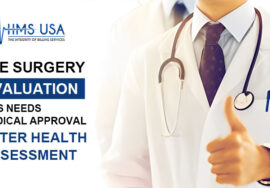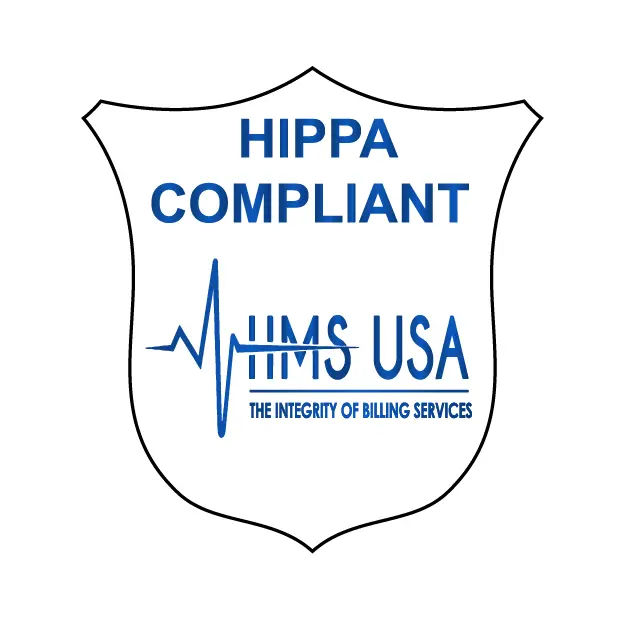
Component of Medical Insurance Verification Process
Medical insurance verification is a process in the healthcare industry where medical billing professionals ensure that patients receive the necessary coverage and providers get reimbursed for their services. In Today’s complicated and complex healthcare landscape, understanding the importance of insurance verification and implementing effective processes benefits patients and healthcare organizations.
This information will delve into medical insurance eligibility verification, its significance, the verification process, Software, and its impact on patients and healthcare providers.
What Exactly is Medical Insurance Verification?
Medical insurance verification is a process to verify a patient’s benefits and coverage with their insurance provider prior to when they receive medical care, and also to ensure that the both the patient and the provider must be enrolled in the same insurance.
This ensures that the patient is aware of his insurance coverage and copayments, deductibles, and other financial obligations which allows patients to make educated choices regarding their healthcare. It also allows healthcare professionals to stay clear of denials and delays, as well as ensure reimbursement for the services provided.
The Significance of Medical Insurance Verification
Better Patient Experience confirming insurance prior to treatment, patients will be informed of their financial obligations and coverage to avoid unexpected costs and avoiding unneeded delays when receiving treatment.
With accurate billing and reimbursement, healthcare providers can avoid costly claims rejections and denials by verifying insurance information before the claim to ensure accuracy in billing and quicker reimbursement.
Reduced Administrative burden, effective processes for insurance verification streamline administration, allowing healthcare workers to concentrate on the patient’s care and efficiency in operations.
Improved Revenue Cycle Management
A proper verification process ensures the smoothest operation of managing revenue cycles, enhancing the financial health of hospitals. HMS USA helps medical centers, healthcare providers, and individuals with medical insurance verification to make maximum reimbursement possible and authenticate patient’s details to avoid rejection of claims and time wastage.
The Medical Insurance Verification Process
Patients Information Gathering
At the beginning, patients must provide their insurance information that include the name of the insurance company, the policy number, group number, as well as the primary policyholder’s details.
Contacting The Insurance Provider
Healthcare facilities should contact the insurance provider to inquire about the patient’s insurance coverage and policy status, effective dates, providers in-network and any pre-authorization requirements.
Benefits of Verification
The insurance company confirms the benefits offered for the patient, for example, health services that are covered, copays, coinsurance, deductibles, as well as the maximum limits.
Pre-Authorization and Referrals
In a few instances, certain treatments or procedures could require prior authorization or referrals. The verification process assures that the conditions are met to prevent the denial of a claim.
Communication With The Patient
After the verification process is completed, the healthcare facility informs the patient, describing the details of their insurance coverage and any possible out-of-pocket expenses.
The Effects on Patients
The verification of medical insurance positively affects patients in a variety of ways. Financial clarity Patients are cognizant of their financial obligations and can avoid unexpected medical expenses, which could result in financial stress.
Quick Treatment
Verification reduces delays making sure that patients receive the medical attention they require without administrative hurdles.
Reduction in Stress
Patients are able to concentrate on healing and health rather than worrying about the complexity of insurance coverage.
The Effects on Healthcare Providers
An accurate medical insurance verification provides many advantages for healthcare providers.
Financial Stability
Timely and accurate reimbursements increase the financial stability of healthcare practice. Reduced administrative costs processes that are streamlined result in lower administrative costs, which can be utilized to optimize the allocation of resources.
With fewer claims denials and rejections, healthcare providers can concentrate on the patient’s care and operational competence. Our team of experts will do transparent verification, accelerates patient trust as well we help in building good relations between healthcare providers and patients.
Read More: Factors Impacting the Price of Enrollment Services
Components of Medical Insurance Eligibility Verification
Patient Demographics
The first step in medical insurance eligibility verification services is to collect essential patient information, including name, date of birth, address, and contact details. Our billing company will verify this information with the insurance company and submit details in proper manners.
Insurance Information
Patients must provide their insurance card, containing details such as the insurance company’s name, policy number, group number, and the primary policyholder’s information.
Policy Status
Confirmation of status, whether the insurance policy is currently active or if it has expired.
Coverage Details
Healthcare facilities check the scope of coverage, including the services covered, co-payments, deductibles, and coinsurance.
In-Network Status
It is necessary to confirm whether the medical provider is in-network with an insurance plan for the patient to ensure accurate coverage.
The Importance of Medical Insurance Eligibility Verification.
Accurate Billing and Reimbursement
Verifying medical insurance eligibility verification services prevent claim denials and rejections, leading to more accurate billing and timely reimbursement for healthcare centers.
Patient Satisfaction
Patients experience a smoother healthcare journey when their insurance eligibility is confirmed in advance, avoiding surprises related to coverage and expenses.
Reduced Financial Risk
Healthcare providers minimize financial risk by verifying that patients have active insurance coverage plans before treating them.
Efficient Resource Allocation
Knowing a patient’s insurance eligibility in advance helps healthcare facilities allocate resources efficiently and plan for potential out-of-pocket expenses.
The Medical Insurance Eligibility Verification Process
Data Collection
Patients provide their personal and insurance information during registration or appointment scheduling.
Insurance Verification Software
Many healthcare organizations use specialized and updated software to systematize the verification process, allowing for faster and more accurate checks.
Contacting Insurance Providers
Healthcare staff contact the patient’s insurance company to verify the policy’s status and obtain details of coverage.
Confirmation and Communication
After obtaining the necessary information, the healthcare facility confirms the patient’s eligibility and informs them of their coverage and financial responsibilities.
Benefits for Patients and Healthcare Facilities.
- Eligibility verification avoids delays in receiving medical services.
- A smooth medical insurance verification process contributes to overall patient satisfaction.
- Automation and streamlined processes lead to decreased administrative workload.
- Timely and accurate reimbursements improve the financial health of healthcare providers.
- Efficient verification fosters trust and loyalty between patients and healthcare facilities.
Conclusion
Ultimately, medical insurance verification is the most important step in the medical industry. It makes sure that patients have insurance coverage that is valid and guarantees the reimbursement of services served by providers. With the help of adequate insurance verification, healthcare organizations can enhance patient experience, increase accuracy in billing, and simplify administrative tasks.
Patients gain financial clarity and prompt access to medical care, while healthcare providers benefit from increased revenue cycle management and less administrative burdens. Overall medical insurance verification plays a crucial role in ensuring affordable and efficient healthcare services that help both healthcare providers and patients in the current complex healthcare environment.
Faq’s
Medical billing insurance verification is the procedure of verifying the insurance coverage of a patient as well as benefits in their insurance company before providing medical services.
However, there are some standard requirements that healthcare organizations typically follow during insurance verification.
Patient Information.
Insurance Information.
Insurance Card Copy.
Policy Effective Dates.
Coverage Details.
Co-payments, Deductibles, and Co-insurance.
In-Network Status.
Pre-authorization Requirements.
Referral Information.
Electronic Verification Tools or Software.
It is a vital element in the management of the revenue cycle of hospitals and healthcare centers. The purpose of verification by insurance companies is to make sure that patients have insurance coverage at the time of service and to find out the full extent of their benefits for the particular medical procedure or treatment they’re seeking.











